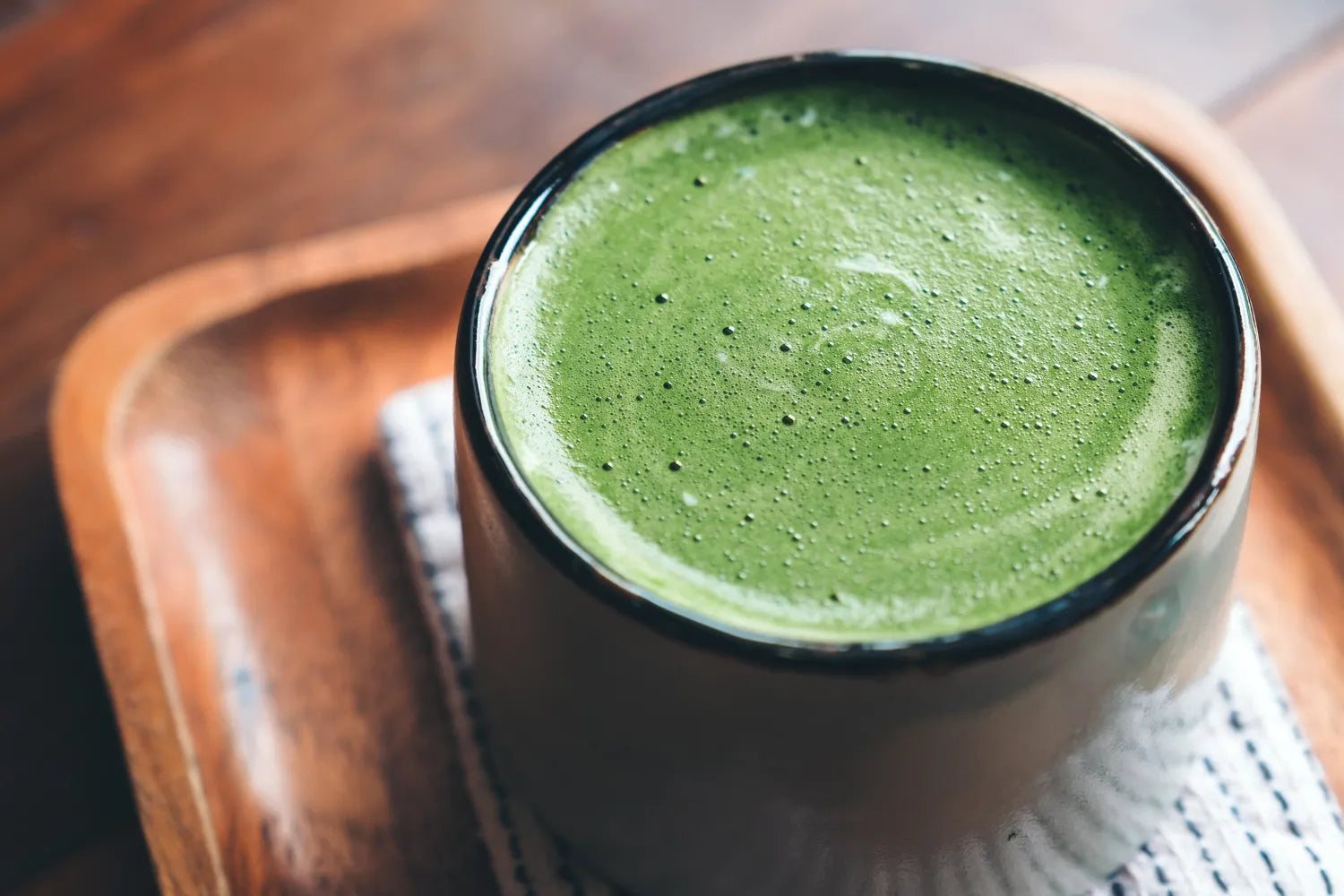Does Matcha Break a Fast?

Fasting is hard, there’s no doubt about it. Beyond the hunger pangs and fatigue, the simple frustration of not being able to enjoy your favorite treats might be tough enough for you to break your fast. We’re here to tell you that you can stay strong in your fast and sneak a treat every now and then — it’s just a matter of what treats you choose.
If you’re a regular tea drinker, you may be wondering if matcha will break your fast. Read on to learn the truth, as well as the benefits of fasting and whether matcha can actually help you get more out of your fast.
What Is a Fast?
Fasting is the practice of giving up food for a certain amount of time. Many people fast today because of its health benefits (more on that later) — in fact, this practice is generally encouraged by many health professionals as long as you’re a healthy adult who isn’t pregnant or breastfeeding.
However, fasting is not a new practice. The concept of fasting is thousands of years old and is a key practice in many religions. For instance, Christianity encourages fasting as a way to practice self-control, Catholicism famously requires extended fasting during the season of Lent, Hinduism uses fasting to get closer to God, and Islam requires its followers to fast during Ramadan.
Does Matcha Break a Fast?
There are many different types of fasts, and the rules of your fast may look slightly different than others. Generally, fasting requires you to stay below a certain calorie count during your fasting period.
The good news is that matcha won’t break your fast if you prepare it the right way. Matcha powder is extremely low in calories and protein. If you just mix matcha powder with hot water, it won’t trigger a metabolic response that would bring you out of a fasting state.
This doesn’t mean you can swing by the nearest coffee shop and order a matcha latte. Milk is high in carbohydrates, protein, and fat, which means it will absolutely break your fast.
Most sweeteners (like honey, maple syrup, sugar, and flavored syrups) will also break your fast. Basically, if you want to enjoy matcha while fasting, it’s generally best to just add water.
Can Matcha Enhance a Fast?
Yes, you can drink matcha during a fast — but could drinking matcha actually help your fast? As it turns out, there are many benefits of matcha that can actually complement the benefits of fasting.
For instance, matcha can encourage a healthy metabolism. Since fasting mainly works by speeding up the metabolism, matcha may support this benefit.
Matcha can also encourage feelings of relaxation, which may help ease hunger pangs at the beginning of your fast. Finally, matcha can help you feel fuller for longer, which may give you the strength you need to finish your fast.
What Are the Types of Fasts?
We mentioned earlier that different types of fasts tend to have different rules. While there’s an overwhelming number of fasting protocols on the internet, the most common ones generally boil down to some form of intermittent fasting.
For intermittent fasting, the general idea is to restrict eating to only certain times of the day or week. When you think about it, most people practice intermittent fasting. If you go 12 hours between dinner and breakfast, then you’ve just fasted for 12 hours!
The most common forms of intermittent fasting include the following:
- 16:8 Fasting: Fasting for 16 hours and eating for eight.
- 5:2 Fasting: Significantly reducing calorie intake for two out of five days of the week.
- Eat Stop Eat: Completely removing food for 24 hours one or two days a week.
- Alternate-Day Fasting: Fasting every other day.
- One Meal a Day (OMAD): Eating only one large meal a day and fasting the rest of the day.
What Are the Benefits of Fasting?
Fasting isn’t just about self-control — there are actually some proven health benefits of fasting. It’s a wonderful natural way to boost your health for free, which is why many health professionals recommend it.
Some of the benefits of fasting include:
- Increases mental clarity
- Improves blood pressure and heart rate
- Increases weight loss
- Reduces insulin resistance
- Lowers fasting glucose in type 2 diabetics
- Increases cellular regeneration
- Induces autophagy, or cellular clean-up
While fasting can definitely have health benefits, there are some people who shouldn’t try intermittent fasting. If you’re pregnant or breastfeeding, your calorie needs are higher and you shouldn’t try any restrictive diets like fasting.
If you have type 1 diabetes, fasting can make your blood sugar unstable. You also should not try fasting if you have a history of eating disorders or if you are under the age of 18.
If you’re interested in fasting, talk with your doctor before you start to make sure it is safe for you. It’s also a good idea to have a doctor or nutritionist supervise your fast, as they can help you maintain good nutrition and health markers.
Wrapping Things Up
Fasting has become pretty popular for its health benefits, which include lowering blood sugar, increasing weight loss, and increasing cellular regeneration. However, it’s also an ancient practice that has deep spiritual roots.
There are many, many things that you’re forbidden from eating and drinking while fasting. Luckily, plain matcha made with water isn’t one of them. If you’d like to combine the benefits of fasting with the benefits of functional mushrooms, check out our Mushroom Matcha+ today.
Sources:
Fasting Across Religions | Karam Foundation
The Important Health Benefits Of Matcha Tea | Piedmont Healthcare
Intermittent Fasting Schedules and Benefits | The Cleveland Clinic
Intermittent Fasting: What is it, and how does it work? | Johns Hopkins Medicine
Start your day
The Right Way








